REWA, a Nigerian self-taught artist who is globally acclaimed. her work is heritage inspired and has been featured in fairs, galleries and museums worldwide. Whilst her artwork is shared all over world, she is also a leading voice in the financial sector in Nigeria.
A.S: Was there a turning point when you realised you wanted to pursue an art career?
R: Yes. It wasn’t one dramatic moment, but a quiet recognition that my creative output was not just a passion but a calling. The turning point came when I realised that my work was resonating with collectors and institutions globally, which gave me the confidence to dedicate myself fully to developing my practice.
A.S: Can you share how you balance your art career with your financial career?
R: I see them as complementary rather than competing. Finance provides structure, rigour and a long-term perspective, while art allows me to explore intuition, culture and storytelling. I structure my time very deliberately, dedicating defined seasons to each, but my mind is always cross-pollinating between the two.
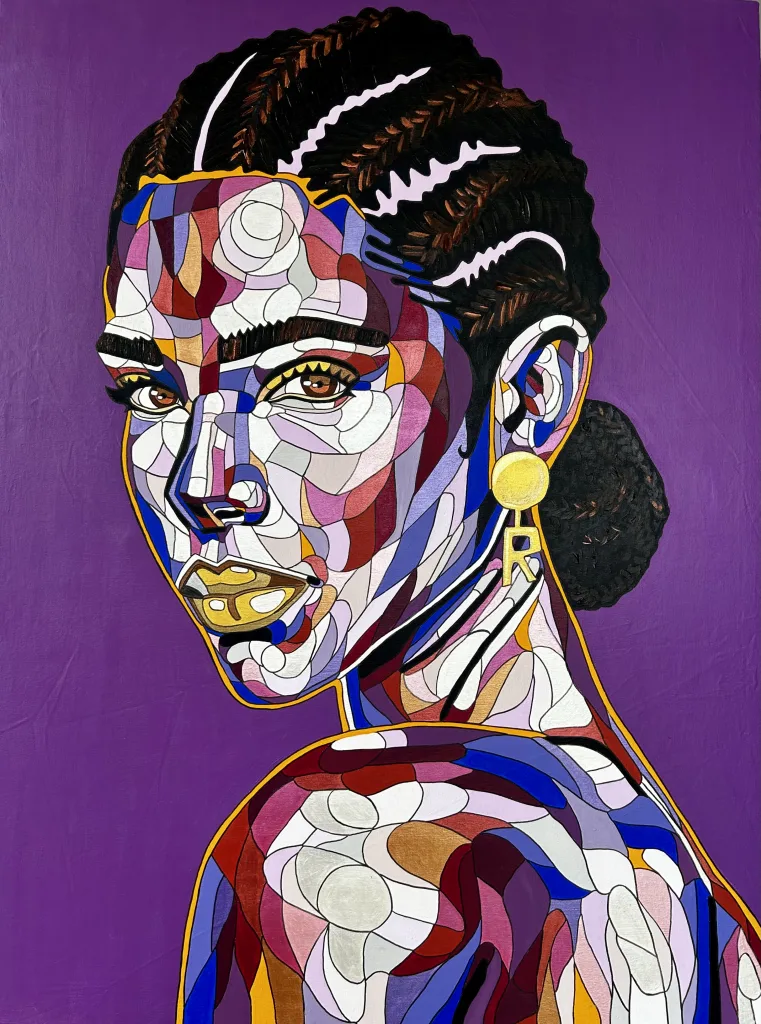
Image courtesy of REWA
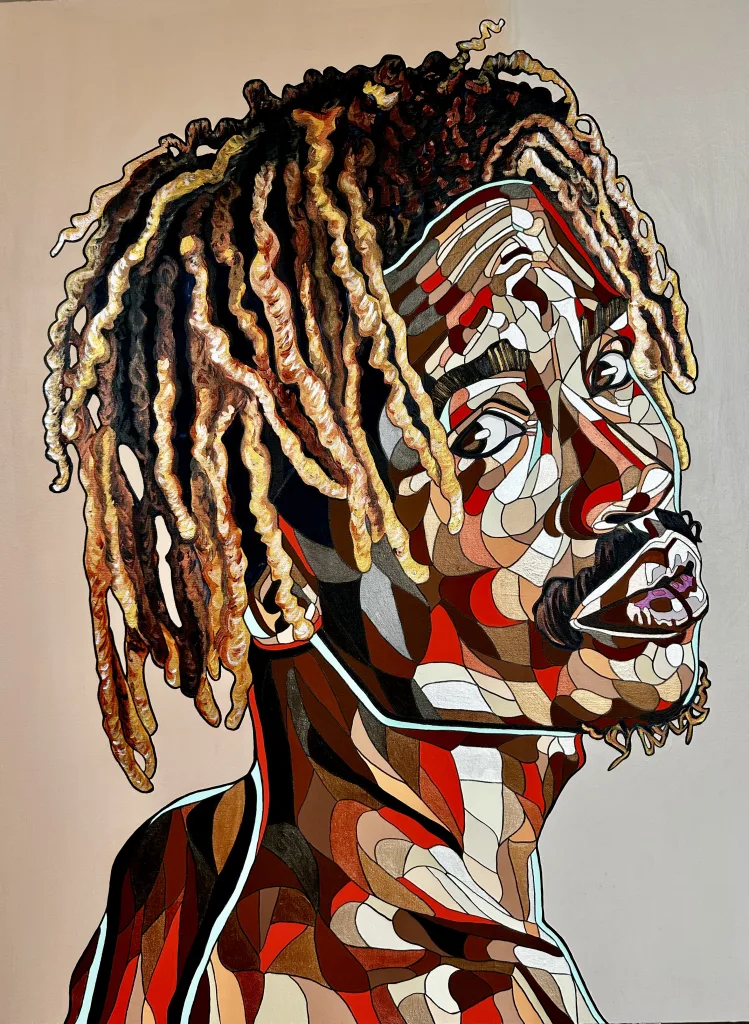
Image courtesy of REWA
A.S: In your upcoming exhibition, what would you like the audience to take away from this new body of work?
R: I’d like the audience to leave with a deeper sense of connection to the heritage, symbolism and layered narratives embedded in my work. I want them to see African culture not as static, but as dynamic, evolving and in dialogue with the world.
A.S: Can you share your favourite memory in your art career thus far?
R: Designing the official poster for the Santa Cruz de Tenerife Carnival was a profound moment. Being the first African artist to hold that honour, and seeing my Agbogho Mmuo spirit come alive on such a global stage, felt both historic and deeply personal. Another unforgettable moment was watching the opening scene of Usher’s Ruin video and seeing my work hanging on the wall. It was surreal to witness my art placed in that context, reaching millions in a completely different cultural space.
A.S: What has been a challenge for you and how have you overcome it?
R: Navigating the art world as a self-taught, Nigeria-based artist has had its challenges, especially with access to networks and resources. I’ve overcome this by being strategic, building relationships with institutions and collectors, and ensuring the work itself speaks for me on the global stage.
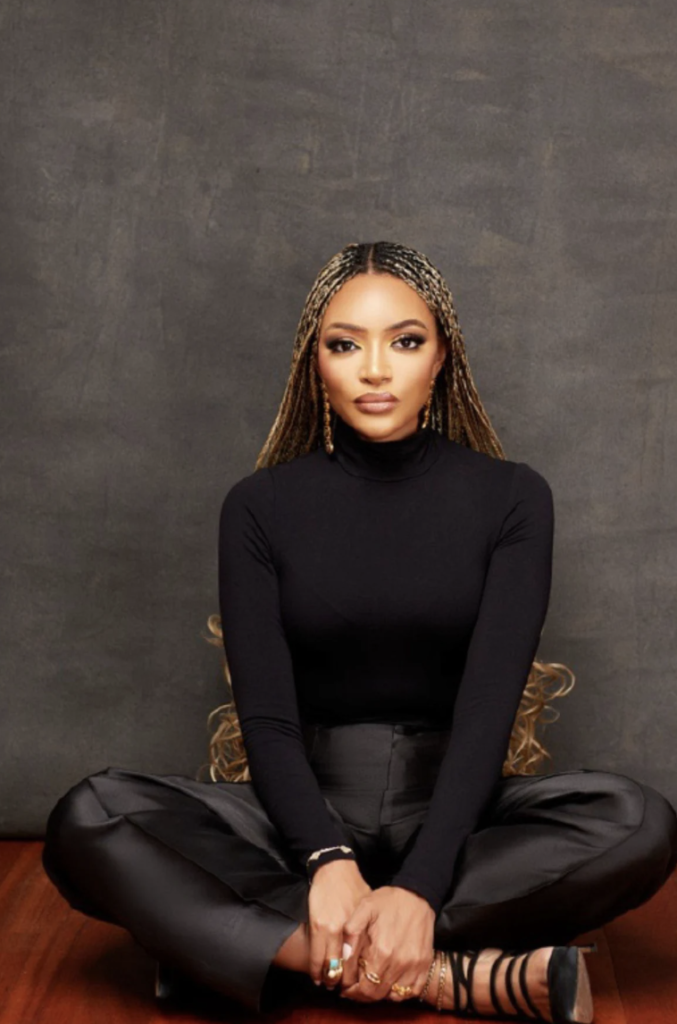
A.S: How has self-taught practice influenced your style and discipline?
R: Being self-taught has allowed my work to develop without the constraints of formal training, giving me a distinct voice. It has also demanded a higher level of discipline. Every composition is the result of independent research, experimentation and refinement.
A.S: How does your background in economics and finance show up in your practice, if at all?
R: My academic grounding in Physiology and Pharmacology from UCL taught me rigour, analysis and discipline, while my professional experience in finance shapes how I navigate the art market. It informs how I structure my career for longevity, position my work strategically and think about value creation over time.
A.S: Are there any new mediums you’re hoping to explore next?
R: Yes, I’m increasingly interested in sculptural forms and textiles. Both feel like natural extensions of my current work and offer new dimensions for storytelling.
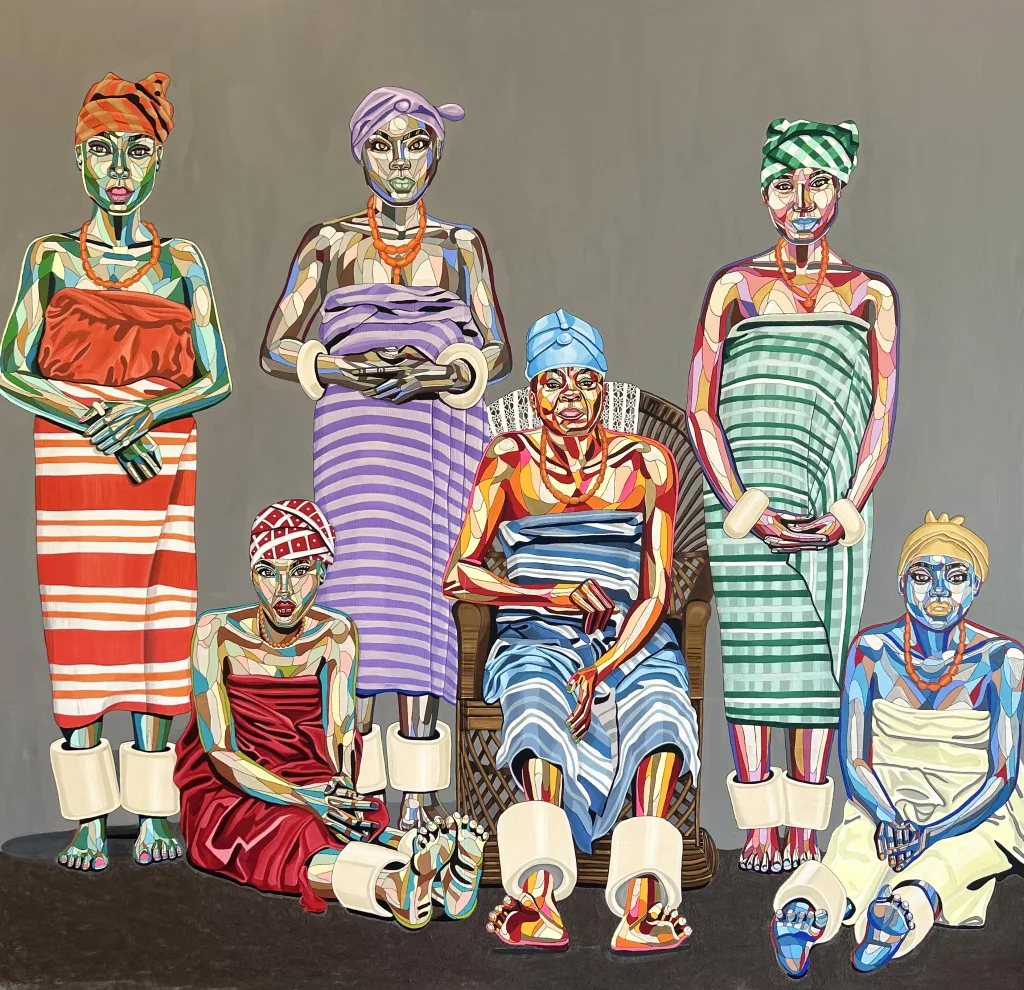
Image courtesy of REWA
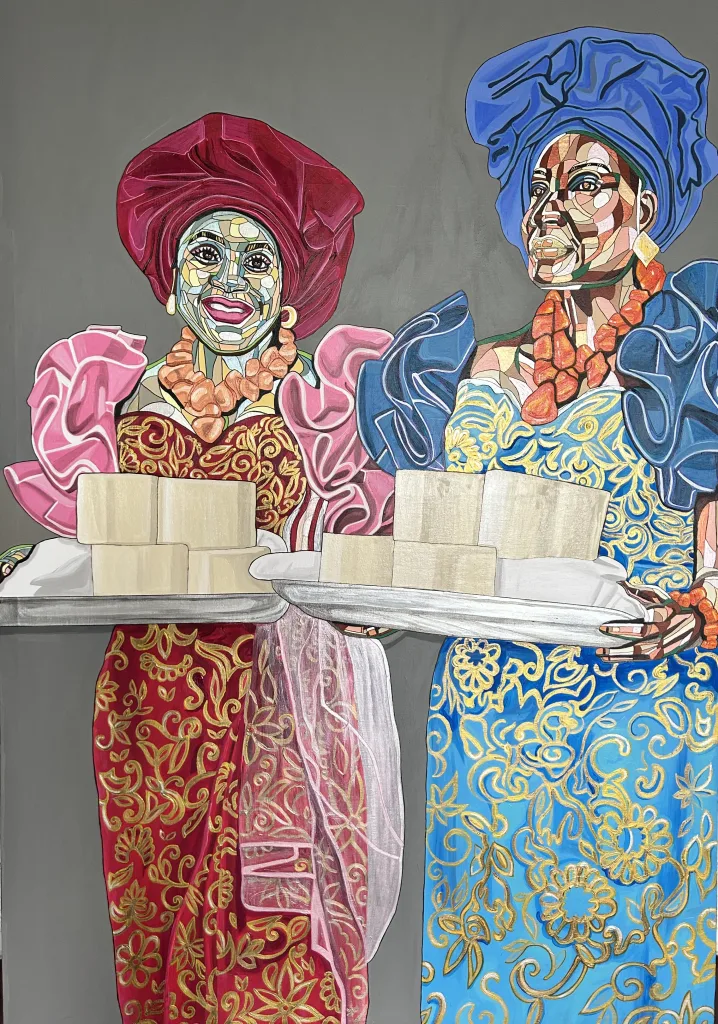
Image courtesy of REWA
A.S: You speak of your work being very intentional. What role does research or storytelling play in creating a new body of work?
R: Research is the foundation of every series I create. My practice draws heavily on historical, cultural and anthropological sources. For example, my ndi otu odu: Women of the Elephant Tusk series took two years of dedicated research, which included studying archival images, conducting interviews and tracing oral histories. Storytelling is what transforms that depth of research into an emotional and immersive experience for the viewer.
A.S: What word of advice would you give an upcoming self-taught artist?
R: Guard your creative voice fiercely. The art world will try to mould you into trends, but the work that endures comes from authenticity. Be patient, disciplined and consistent, the rest will follow.
For more information to to keep up to date with REWA, check her website and Instagram, @artbyREWA.


